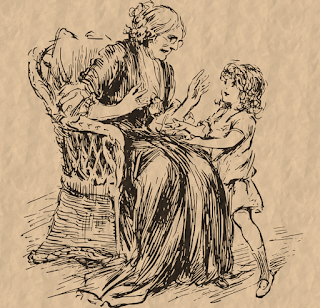11 October 2015
The Glory of the Story
Stories are for fun. We love to laugh or be scared or to weep as we hear about the adventures of real or imagined people.
But story telling is not just for fun. It's educational. Stories can teach us many things. The story of King Midas teaches us the dangers of greed. The story of Ripley teaches us not to mess with alien eggs. The story of Frodo teaches us to be wary of great power and to never trust an orc.
It's possible that story telling played a big part in the development of our species. Stories can pass on practical lessons, like how to kill a mastodon or escape from a bear. The accumulation of stories over time creates a growing body of knowledge that gives each new generation an advantage over the previous one.
Another thing that stories teach us is that we're not alone. They teach us that others have suffered the same pains. That's why love songs are so popular. They tell the story of soaring hearts or broken hearts, and we enjoy them because we've been there. Those songs are about us.
Sometimes a story will offer hints on how to deal with those pains, but sometimes the knowledge that we're not unique is the real value.
I didn't realize that particular value of story telling for a long time. I didn't realize it until I was in my twenties, a few years after I saw a movie called "The Great Santini". It's the story of a Marine Corps family, which is the kind of family I grew up in.
I first saw the movie when I was serving in the Marines myself. I watched it with a friend in a cheap, off-base mobile home we'd rented together. He laughed at me throughout the entire movie, because throughout the entire movie, I was staring at the TV with my mouth hanging open.
My mouth was open because when I watched the movie, I thought someone had been spying on my family. I don't mean that in a general sense. I thought someone had actually been recording us. Even though they'd changed things around a bit, I could tell you where the hidden cameras and microphones were as "they" captured all the secrets of our lives.
My friend didn't understand the horror I felt at seeing my family's dirty laundry aired for everyone to see.
What I didn't understand until much later is that my family's secrets weren't all that secret. Pat Conroy, who authored the novel that the film was based on, was the son of a Marine officer, just like I was, and we had very similar experiences.
Nobody had spied on my family after all.
I have a lot of gripes about modern life, but one thing has definitely improved. We talk about things more. We don't keep things hidden as much as we used to, and that's a good thing, because knowing that the bad experiences in your life are not unique makes it easier to deal with them, and telling stories is one way we share those experiences. Stories don't just help us understand ourselves. They can also help us understand other people.
Maybe we've over-shared. Maybe that's why superhero movies are so popular these days. They give us a different benefit of story telling, the pleasure of escapism, of stepping out of our world for a while and into the world of imagination. I love me some pure escapism.
But the other kind of story, the educational story, will always be an important part of what takes us from being a child to a fully aware adult. A good story, one that engages us emotionally as well as intellectually, can drive home a lesson in a way that a dry classroom presentation never can.
Subscribe to:
Post Comments (Atom)


No comments:
Post a Comment